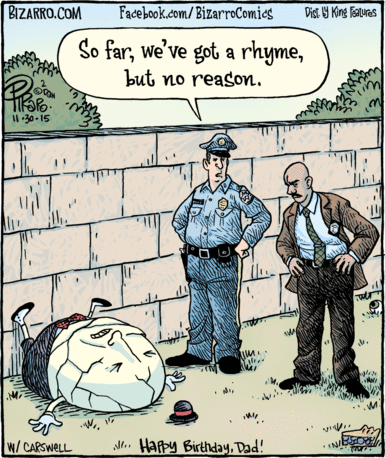
When I was a teenager I heard a sermon on the mystery box. The pastor recommended that throughout life everyone should keep an imaginary box into which you place those things that happen in life for which there seems to be no good explanation. In the course of life, events and issues happen that we don’t understand. We ask “why” but never get an answer (though some well-meaning friends will offer their opinions). We pray for answers and reasons, but God is silent.
So when a painful, unexplainable event happens, open your mystery box, place the event inside, close the lid and then stop trying to figure it out. Someday, in heaven, open up the box and talk to God.
I remember the first thing I put in my box. When growing up, my hero was the minister of music at my church. He was a wonderful man and effective minister. When he was 42 years old (I was 18) he had a stroke and became incapacitated. He’s now in his 90’s. I wrestled with God about his illness and subsequent limited lifestyle. I finally opened up my mystery box, placed the anger, confusion, and unsolved mystery inside, and shut the lid.
I’m now 68 years old and have five things in my box.
This is a wonderful, effective way to deal with imponderables. By placing them in the box, we’re not denying or minimizing our pain and confusion. We’re simply acknowledging that there’s no clear answer available in this life, but there will be in the next. When we get to heaven, we can discuss these issues with God (though I think they will become clear the moment we arrive).
One of my favorite Bible passages is Isiah 55:8-9:
“My thoughts are nothing like your thoughts,” says the Lord. “And my ways are far beyond anything you could imagine. For just as the heavens are higher than the earth, so my ways are higher than your ways and my thoughts higher than your thoughts.”
This is not new or shocking news. Do we actually think that God thinks like we do or is restricted by our limitations? If he did and was, He wouldn’t be God.
By the way, we often fumble the ball when responding to other people’s imponderables. We do them and God a disservice when we try to explain something for which there is no explanation. I even resist saying things like, “God will cause this to work out for your good” or, “this will make you stronger.” Either don’t say anything or suggest that they start their own mystery box. [Here’s a post I wrote titled Don’t say this to someone who is hurting.]
Let’s just trust God and his ways in our lives and the lives of other people.



